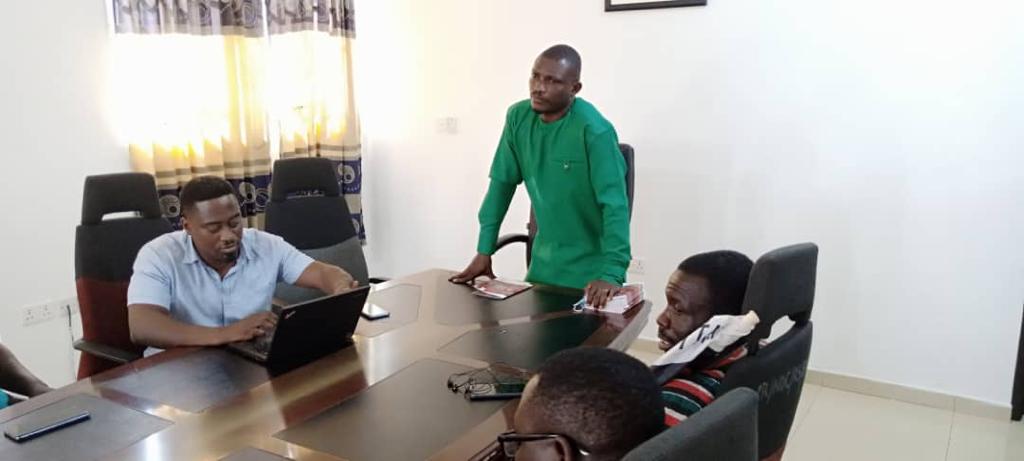Ghana’s education system has long been celebrated for its expanding access, from the Free Compulsory Universal Basic Education (FCUBE) policy of the 1990s to the Free Senior High School initiative launched in 2017. Now, the government has taken another bold step to introduce free tertiary education for Persons with Disabilities (PWDs).
The move has been widely welcomed as a major milestone in promoting equity and social justice. But it also raises a deeper question: is Ghana truly ready for inclusive education beyond policy declarations?
Inclusive Education Policy in Ghana
Inclusive education in Ghana has evolved through a combination of national reforms and international commitments.
The 2015 Inclusive Education Policy, developed under the Ministry of Education and the Ghana Education Service, defines inclusive education as “a process of increasing participation and decreasing exclusion within and from the education system.” The policy aligns with global frameworks such as the UN Convention on the Rights of Persons with Disabilities (CRPD) and Sustainable Development Goal 4, which emphasizes education for all.
According to the Ghana Statistical Service (2021), about 8% of the population lives with some form of disability, yet only a small proportion access tertiary education. The 2021 Population and Housing Census revealed that less than 2% of persons with disabilities aged 18 years and above have completed tertiary education, compared to about 10% of the general population. These figures underscore the structural inequalities that persist despite decades of policy attention.
The Free Tertiary Education Initiative for PWDs
In announcing the new policy, government officials emphasized that financial barriers remain one of the biggest challenges preventing students with disabilities from pursuing higher education. The initiative, therefore, seeks to eliminate tuition and related fees for qualified PWDs enrolled in public tertiary institutions. This builds on previous interventions, such as the Disability Common Fund and targeted scholarships, but goes further by institutionalizing financial support within the national education framework.
The program represents not just an act of social welfare but also a potential game-changer for human capital development. It signals a commitment to equal opportunity and a recognition that inclusion must extend beyond access to basic education.
Advantages of the Policy
The benefits of the policy are multi-dimensional. Financially, it reduces the burden on families already facing high costs associated with assistive devices, healthcare, and transportation. Socially, it strengthens national efforts to combat stigma by normalizing the presence of PWDs in higher education. From an economic standpoint, it can improve employability and productivity, as tertiary education often determines access to skilled jobs and leadership roles.
Moreover, inclusive tertiary education enriches learning environments for all students. Exposure to diverse perspectives fosters empathy, creativity, and collaboration, the kind of skills increasingly valued in today’s world of work. In essence, the policy aligns inclusion with development, not charity.
Current Challenges of Educating PWDs in Ghana
Education for children with disabilities in Ghana faces persistent challenges in access, funding, and support services. In some northern districts, over 60% of children with disabilities remain out of school, while five regions, North East, Bono East, Western North, Savannah, and Oti, lack any special education facilities.
The Special Education Division (SPED) historically received only 0.4 – 0.7% of total education sector funding, and although funding has improved slightly, schools continue to lack critical resources such as transport, classroom assistants, and health personnel. Only about 8% of basic schools have ramps, reflecting poor accessibility, and there are no dedicated schools for children with cerebral palsy. Teacher capacity and attitudes toward learners with special needs remain limited, while weak data systems hinder effective planning and monitoring. Although special schools continue to play an important role, experts recommend repositioning them as assessment and resource centers to better support Ghana’s inclusive education agenda.
These foundational gaps undermine the effectiveness of policies such as the free tertiary education initiative for persons with disabilities, underscoring the need to strengthen the basic and secondary education pipeline to ensure real accessibility and progression for all learners with disabilities.
In the tertiary institutions, the reality on the ground also reveals deep-seated challenges. Many public universities and colleges lack disability-friendly infrastructure, ramps, tactile pavements, elevators, and adapted washrooms are either absent or inadequate. Teaching and learning materials are rarely available in accessible formats such as braille, large print, or digital text.
Another concern is human capacity. Few lecturers and administrative staff have been trained in inclusive pedagogy or disability awareness. This limits their ability to support students effectively, even when physical access is provided. Furthermore, data management remains weak; institutions often do not have accurate records on students with disabilities, making policy implementation and monitoring difficult. Financial barriers, though reduced, are not fully removed. Some costs, such as transportation to campus or specialized equipment, remain high. Without comprehensive support systems, free tuition alone may not guarantee real inclusion.
Getting the Best Out of the Policy
To maximize the impact of this initiative, Ghana must adopt a holistic approach to inclusion. First, the Ministry of Education and tertiary institutions should develop clear implementation guidelines, including how students will be identified, supported, and monitored. Infrastructure audits must be conducted to ensure campuses meet minimum accessibility standards.
Second, training and sensitization programs should be rolled out for academic and administrative staff. Building institutional cultures of inclusion is as important as physical accessibility. Third, partnerships with organizations such as the Ghana Federation of Disability Organisations (GFD) and development partners can help provide assistive technologies, mentorship, and psychosocial support for students.
Finally, sustained funding is crucial. Free education policies often face sustainability challenges; hence, dedicated budget lines and performance monitoring mechanisms should be established to prevent policy fatigue.
Conclusion and Way Forward
Ghana’s decision to offer free tertiary education to Persons with Disabilities is a commendable and progressive step. It reinforces the principle that access to education is a right, not a privilege. Yet, genuine inclusion demands more than fee waivers; it requires systemic reform, institutional commitment, and societal attitude change.
As the nation celebrates this new policy, it must also confront the practical question of readiness. Inclusive education is not achieved through policy declarations but through deliberate investment in infrastructure, capacity, and compassion. Only then can Ghana move from the promise of inclusion to its full realization.





